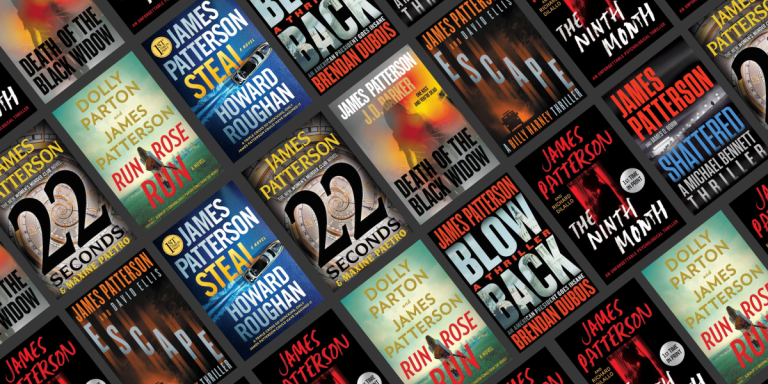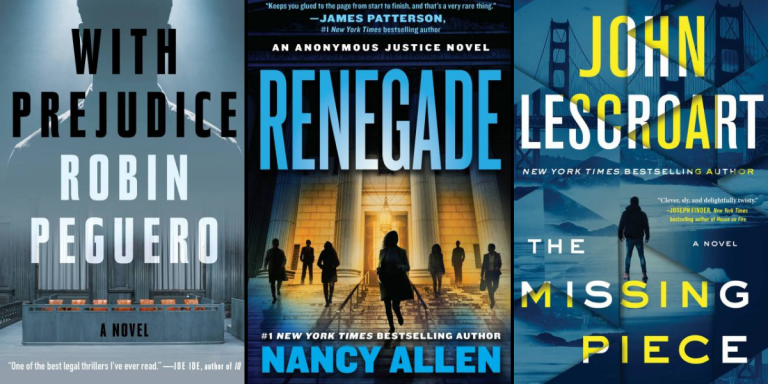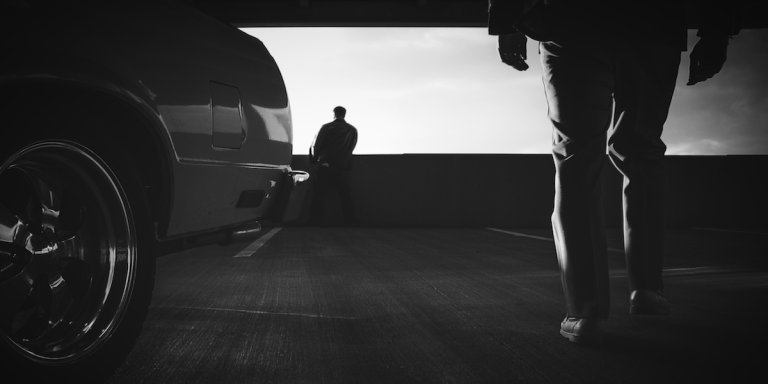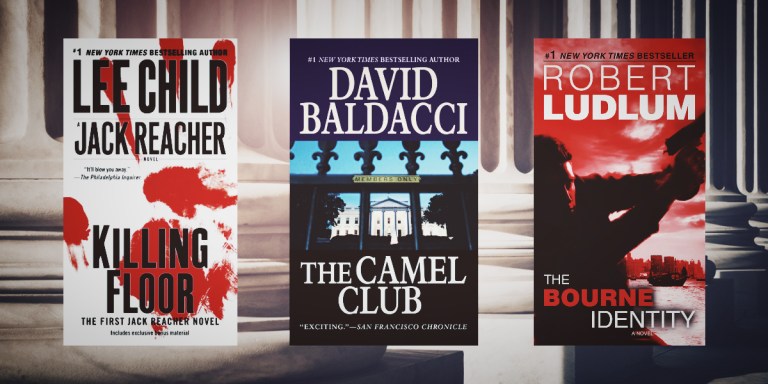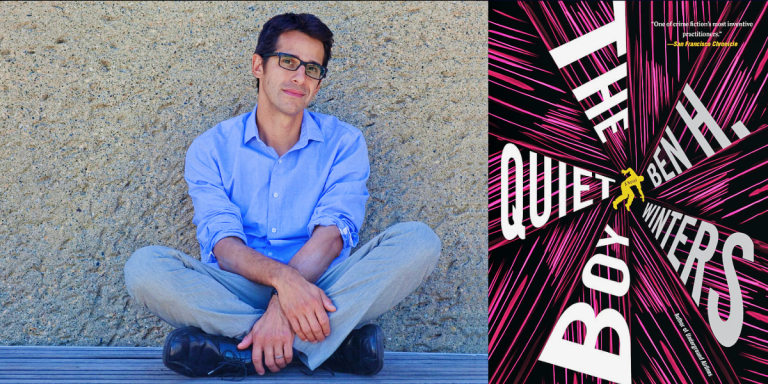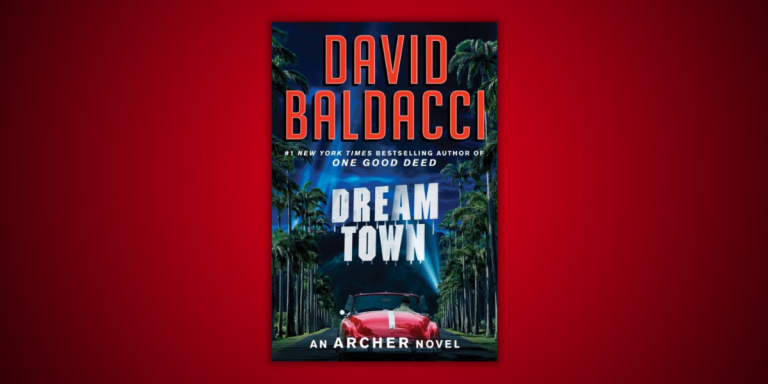Read the Excerpt: Once a Thief by Christopher Reich
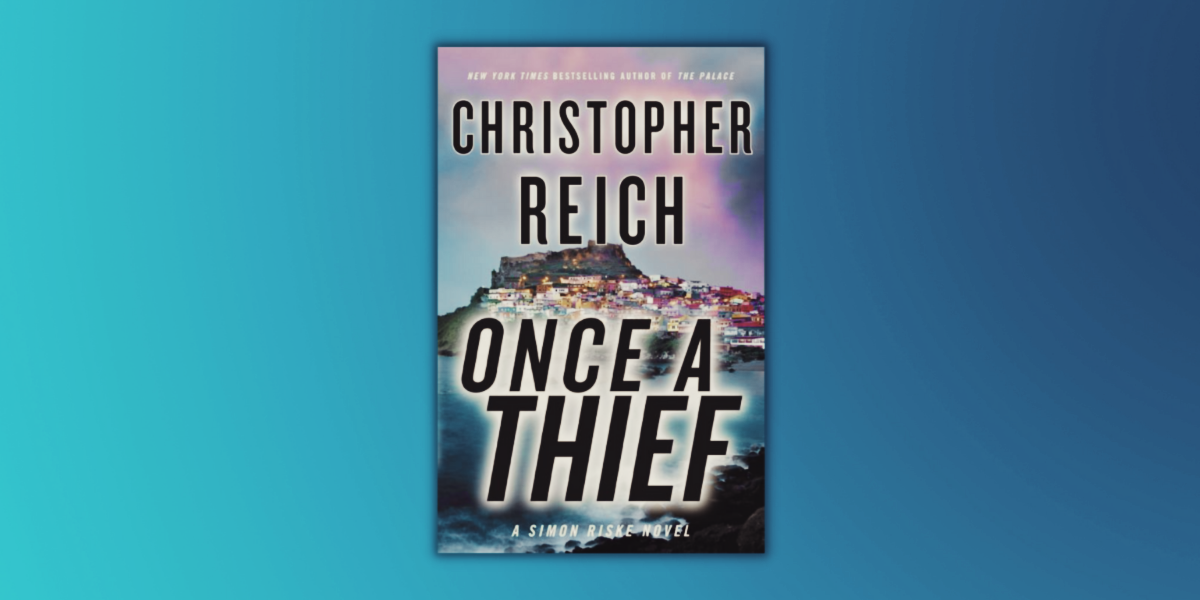 CHAPTER 6
CHAPTER 6
London, England
Traffic to the shop was as bad as Simon could remember. He needed thirty minutes just to get out of the City, cross Blackfriars Bridge, and make it onto the A3. A distance of just over two miles. Maybe it was time to pick up and head to sunnier climes. Marbella, Nice, Rome, even. He’d liked the hill country outside Monterey, California, at least until Sylvie Bettencourt had gone and ruined it. The fact was, Simon could run his business from anywhere. Clients sent him cars from all over the globe. Buy a building. Bring in a team of mechanics. No one needed to put up with this annoyance.
Simon turned on the radio. The Police. “Message in a Bottle.” Appropriate. Memories of knocking around the country house in Royal Tunbridge Wells. What was he . . . seven? Eight? Had just come to London… Saturday mornings, music blaring from his father’s stereo. The Police. Springsteen. Aerosmith. But mostly, the banging rock of the 1970s. T. Rex, Bad Company, Zeppelin. Simon’s taste in music came from his father, a legacy he treasured.
Traffic came to a halt. His hands tightened on the wheel. The light turned green. No one moved. Horns sounded. Yeah, why? Simon shouted silently, eyeing the car behind him. What good is that going to do? He looked at his hands, knuckles white. He relaxed his grip. For that matter, what good is it holding on to the wheel like you’re strangling your worst enemy?
Simon caught sight of his eyes in the mirror. He didn’t like who he saw looking back. Too soft. Too polished. One of them. He’d seen it coming. Maybe it was him getting older. Attaining a degree of success. Banking a few dollars. Somewhere along the line he’d lost sight of who he was. Where he was from. What he’d been through. It wasn’t that he’d stopped caring. It was that he’d willed himself to forget.
It was the fiasco in the restaurant that had done it. He’d been bested. He didn’t mean by Vadim, though he would not forget anytime soon being tossed onto his back as if he were a Cub Scout. It was her. It was Sylvie Bettencourt. She’d had him fooled. Hook, line, and sinker. He’d taken her at face value. Her looks, her demeanor, her presentation. Sylvie Bettencourt, buyer for the richest collectors in the world, class act.
Oh, Simon. Oh, buddy. She got you. Peel off the veneer, the clothes, the makeup, the charm—“Word is that you are a resourceful man”—and she was a hood. A stone-cold criminal.
And he’d missed it. He hadn’t had a clue.
A kid who’d grown up on the mean streets of Marseille, who’d begun stealing cars at sixteen, taking down payroll trucks a few years later, a made man in La Brise de Mer, the toughest outfit in the South of France, at eighteen. He’d failed to spot one of his own.
This whole thing was a wake-up call.
No more, he told himself. No more forgetting who he was, where he came from, what he’d done. He was still the renegade youth who gloried in emptying an AK-47 at an armored truck. Who could jack a car in thirty seconds. Who enjoyed hearing the snap of a ligament shearing when he fractured a man’s knee.
He’d show Bettencourt.
She was right about one thing. He was a resourceful man.
Once a thief.
This wasn’t his first repo job.
***
Twenty years earlier.
Marseille. A month from his nineteenth birthday. Salad days, then, even if he was already neck-deep in criminality—boosting cars, knocking off jewelry stores, administering beatings to enemies and to anyone he didn’t like. Before the Monet and the Patek. Before the nonexistent gearbox.
Before all of them, there was Mercedes. Simon was surprised he didn’t trip over the memory more often. Then again, no one liked to be reminded of the times when things might not have gone the way they wanted… shouldn’t have gone that way by all rights.
For the record, Mercedes was a person, not an automobile. French, not German, with more than a trace of Corsican blood in her, which always complicates matters. Her full name was Mercedes Isabella Campobello, and she was the youngest daughter of Alberto Campobello. “Don Alberto” to Simon and all those whose forearms were emblazoned with the mark of La Brise de Mer, the criminal organization that ruled the shadier side of the sunny Riviera.
“Americano, vieni. Per favore.”
An August day like this one, sunshine instead of rain, and windy, the sirocco blowing across the Mediterranean, depositing a fine wash of sand from the Algerian desert and, remarkably, the scent of oranges grown there. An urgent call. Come to Don Alberto’s home. “Just you, Ledoux,” which was the name he went by in those days, his mother’s married name. “Not a word to anyone.” An anxious drive to the pale stone villa outside Cassis, on a bluff overlooking the Calanque de Port-Miou.
“Americano, look at you! Sit, please.”
It was Simon’s nickname, referencing his mixed parentage, though Simon was as French as anyone who’d grown up in the 16th arrondissement of north Marseille.
“Don Alberto, an honor,” said Simon, bowing his head.
The don waved away the formality. They were friends, after all. Amici.
Family, too, in a Mediterranean sense of the word.
Simon sat down, shoulders pinned back, jaw raised, gaze rock-solid. It was a Sunday morning. By definition, he was still either drunk, stoned, or high from the night before. He had showered, put on a fresh set of clothes—his best jeans, an open-collared shirt, and a pair of Ferragamo loafers that had belonged to the husband of a woman he was seeing. Visine for the eyes. A shot of fernet for the gut. And two bumps of Bolivia’s finest for his head.
Andiamo!
Don Alberto conducted his affairs beneath a sea-green canopy in his garden. He was a dapper, middle-aged man, dressed in white linen, silver haired, with a raptor’s fierce nose, and its dark, all-seeing eyes, too. He sat at an aged wooden table on a bed of gravel adjacent to his pétanque court. His dog, Bella, a wire-haired mutt he’d rescued from a rival’s farm in Corsica, lay at his feet. To look at, he was a successful businessman enjoying a summer morning out of doors—that is if you didn’t pay attention to the bodyguard standing behind him, a pistol in his shoulder holster and a lupara cradled in his arms.
“A problem,” said Don Alberto. “My daughter, Mercedes. I believe you know her.”
Simon said he did and asked if she was well. In fact, many people knew Mercedes Campobello. More than a few looked like Simon. Dark haired, lean as a girder, eager to get into trouble.
“I haven’t seen her in a month,” Don Alberto continued. “No, no, don’t worry. I know where she is. With the older Spado boy. Vicente. Shacked up in his hotel suite at the Negresco.”
“I know him,” said Simon. Thirty, an underboss in the family business. Not a thief like Simon. No smash-and-grabs for him. A businessman, or so he fancied himself. Sharp suits. Slim wristwatch. BMW in his garage. Simon called him a drug dealer.
“Who am I to tell her who she can see?” said Don Alberto. “She’s always done what she wanted. If she likes Vicente Spado, good for her.”
Simon nodded, but his expression let the don know his true opinion. “But. . .” Don Alberto pursed his lips. “She has something of mine.
Something I need returned to me. True, I gave it to her. A present for her eighteenth birthday, but now, with things as they are, I cannot allow her to keep it.”
Ah, thought Simon. The car. A red Porsche. The bane of drivers up and down the route nationale. Don Alberto wanted Simon to repo the car before she drove it off the Moyenne Corniche. Easy enough.
Don Alberto pushed a photo into Simon’s hand. “Take a look.”
Simon held it up. Not the Porsche. A picture of Mercedes Campobello wearing a black dress, dark hair up, brown eyes staring invitingly into the camera.
“See it,” said Don Alberto. “The coin around her neck. It was my mother’s and her mother’s before it. Their dearest possession. A treasure.”
Simon studied the necklace. It was a gold twenty-franc piece hanging from a slim chain. Common enough. He could find a dozen like it in jewelry stores and pawnshops for a few thousand euros. “It’s very nice,” said Simon.
“Now look at this.”
A second photograph, this one of a thin man, black hair, mustache, wearing a dark suit and blue dress shirt. A poser.
“Vicente Spado,” said Simon. “Look closer.”
Simon took the photo. His stomach clenched. There was the coin . . . around Spado’s neck. Ah, it had to be. Simon made an unpleasant noise.
“My sentiments exactly,” said Don Alberto. “She gave it to him. A knife in my belly would hurt less.”
Simon handed the photos back, his own belly growling, an envoy of bad things to come.
“I can’t have it,” said the don. “The disrespect. If my mother knew…” He placed the pictures facedown on the table. A sip of espresso. The hawk’s gaze landed on Simon. “If you could return it to me.”
“The coin?”
“You’re good at this kind of thing, I’m told. You have a light touch.”
Simon accepted the compliment with aplomb. Yes, he could lift a wallet, provided the mark was drunk. But this? All the same, he nodded confidently.
“Take your time. Maybe you come next Sunday? We’ll have a nice lunch together, just you and me. Famiglia. Some carbonara, wine? So I can thank you.”
“Of course, Don Alberto. Next Sunday.”
“Eleven o’clock.Before it gets too hot. You do like carbonara, Americano?”
“My favorite.”
“Say goodbye to Bella.”
Simon muttered a few words as he left. Goodbye was not among them. It would be easier to steal the Mona Lisa from the Louvre than a chain from around Vicente Spado’s neck.
***
Spado was easy to find. As Don Alberto had stated, he had taken up residence in a suite on the top floor of the Hotel Negresco, Nice’s finest, on the eastern end of the Promenade des Anglais. First the good news. After two days, Simon had his schedule down pat. Spado left the hotel at nine in the morning, a few of his cronies in tow, and zipped around town in the BMW, venturing to Cannes, Antibes, Toulouse, never farther. Always back by six. A businessman indeed.
Now the bad news. Spado wore the coin religiously. Simon didn’t need the don’s photo to recognize it. He’d seen it close at hand, the last time as it was swinging wildly back and forth between Mercedes Campobello’s pear-shaped breasts as she straddled him in the back room of a club in the Vieux-Port in Marseille. Even so, it didn’t look half bad around Spado’s neck.
Be that as it may, there would be no getting it during the day. Nighttime was a different story.
Every evening at nine Spado left the hotel with Mercedes Campobello, accompanied by a rotating band of friends and hangers-on. It was their pleasure to make a tour of a half-dozen discothèques and clubs along the Côte d’Azur. Villefranche. Saint-Jean-Cap-Ferrat. Cap-d’Ail. Each night, however, ended at the same establishment twenty-odd kilometers up the coast in Monte Carlo. Jimmy’z.
So Jimmy’z, then.
Except they wouldn’t let him in.
He arrived Wednesday at midnight. The club was located a block from the port. Nothing special to look at. A two-story commercial building. White tile façade. Neon sign. Red carpet. A couple of tall plants. Other than the line outside the door, there was little to indicate that it was among the glitziest nightclubs in France, owned by Régine, a red-haired force of nature who’d singlehandedly introduced the word “discothèque” into the lexicon of nearly every language around the world. Régine and her well-trained staff didn’t like nineteen-year-old Simon Ledoux, no matter how alluring his flashing green eyes and rugged good looks. There was something of the voyou—the hoodlum— about him, and hoodlums were not welcome at Jimmy’z.
Thursday night Simon arrived wearing a suit he’d borrowed from a friend, Tino Coluzzi, who unfortunately was a little smaller than him. He’d cut his ponytail and gone in for some of the greasy stuff Spado used by the barrel. A shave. No rings on his fingers. The diamond stud in his ear, however, stayed.
No go.
The handshake with a hundred-euro note never came into play.
Friday night. Time running out. He arrived a little earlier, this time paying one of the older guys, Jojo Matta, to act as his chauffeur and ferry him to the entrance in his new Renault. Jojo held the door as Simon climbed out and walked to the head of the line. This time he even was able to speak to the doorman, palm him two hundred euros. The money was promptly and politely refused.
“Fuck off back to Marseille, p’tit con.”
One of his homeboys. Just his luck. Simon made a note of the bouncer’s face. One day . . .
It was then that Simon saw the Ferrari. A red 308 GTB. The driver was a troll: short, fat, probably a Russian by the diamond-encrusted Orthodox cross around his neck. His companion, however, was lithe, blond, and a looker. Quicker than a hiccup they were inside.
Saturday night. Now or never. He found a Ferrari parked behind the Carlton Hotel. A Testarossa. White, not red, but there was that thing about “beggars.” The girl was named Sophie. A knockout to look at and thrilled to have an honest night out. Beyond that . . . well, for tonight, looks were all that mattered.
He arrived at a few minutes past eleven, so early that the velvet rope wasn’t in place. Same bouncer. No line. Before the guy could say a word, Simon palmed him five hundred euros and a plastic vial. A look at the Ferrari, at Sophie, at Sophie’s décolletage, not necessarily in that order.
“Go ahead.” Simon was in.
***
Vicente Spado and Mercedes Campobello arrived at two a.m. From his vantage point at the bar in the rear of the club, Simon watched as they were led to a vacant table, one with a snotty little placard reading reserved. Four others joined them. Bottles were brought. Grey Goose, Dom, Perrier. A hand went up. Spado snapped his fingers. A tureen of caviar arrived in a moment, the waiters kowtowing as if Spado were the King of Siam. It was, to be honest, impressive. Maybe dealing drugs wasn’t such a bad option after all.
Simon ordered a beer and, for Sophie, a gin and tonic. Another fifty euros. He was five beers in already. The problem was that he was too nervous to just sit and wait without taking a sip. If he wasn’t drunk, he was definitely tipsy. There was only so much booze a one-hundred-fifty-eight-pound frame could hold.
His plan required two things: first, that Vicente Spado liked to dance.
And second, that Sophie did what he’d taught her.
There was movement at the table . . . Simon rose off his stool. Maybe? The dance floor was packed, colored spotlights dashing here and there. No. Two of the women headed to the ladies’ room.
It was critical Mercedes not see him, at least not until he was ready to move. She wasn’t the quiet type. He was counting on the fact that his conduct—not entirely gentlemanly, it was true—had not left him in her better graces.
And then, like that, they were up, making their way onto the dance floor, Spado cutting a path to the center, shoulder lowered, Mercedes following close behind, hand in his.
“Wanna dance?” he said to Sophie.
“Now? I don’t really like this song.”
“Now.” Simon gripped her hand and made his way onto the floor, taking his time until he and Sophie were beside Spado and Mercedes Campobello. Simon stepped closer, too close, nudging her. She looked his way, a moment to recognize him before returning her attention to Spado. Simon stayed close, purposely edging into her space, keeping his eyes on Sophie. Another bump, hip to hip. In his mind, he counted the seconds until she reacted. Mercedes was not what one might call “reserved.”
“Salut,” he said when their eyes met.
“You. Jerk.”
A word in her ear. “I’ve missed you.”
“Leave,” said Mercedes. “I don’t want to see you.”
“I just got here.”
Simon glanced at Sophie, giving her a nod. She slipped in front of Vicente Spado, giving him her attention. Too blond, too buxom, she was impossible to ignore. She wore a crimson silk scarf around her neck and dashed it off, running it between her hands before draping it around Spado’s neck. Who was Vicente to mind? Jimmy’z was that kind of place. Sophie sidled closer to him, still running the scarf back and forth, pressing her chest against him, overdoing it, but by then it was too late.
Enough was enough.
Mercedes transferred her ire from Simon to Vicente Spado. No violence. Not even a hint. A cold smile and some determined footwork to reclaim her place with Spado. Sophie let go of the scarf. Simon stepped in, looked Spado in the eye, and, in the time it took to whisk the scarf off his neck and return it to Sophie, unclasped the chain and slipped the coin—the don’s precious family heirloom—from his neck.
Mission completed.
The only thing left to do was to leave as quickly as possible. But Simon was nineteen, full of himself, and as the bouncer had correctly noted the night before, un petit voyou, a little hoodlum.
“Nice piece,” he said to Spado, meaning Mercedes. “If you can handle her. I don’t think so.”
As expected, mayhem. Spado threw a punch. Simon threw a harder one. He was skinny, but what was there was muscle. Spado was taller, probably stronger. Simon was crazier. The taste of his own blood turned him into a mad dog. Spado didn’t stand a chance.
***
Memories.
An hour later, rain falling harder, Simon parked in the lot behind his shop. All these years later, maybe he still was un petit voyou. A little hoodlum. Why shy away from it?
He ran to the back door, getting soaked on the way. He threw open the door. The garage was dark, no sign of a living soul. The boys had picked the wrong day to play hooky. What was it, six o’clock? Everyone taking a half day? “Hello? Where is everyone? Lucy? Harry? Taking a half day?”
He ran a hand along the back wall, searching for the light switch. He was not amused. They wanted to play games. Fine. He’d show them how to play games. He heard a giggle. The overhead lights came to life.
***
Music blared from a boom box. Was it . . . disco? Celebrate good times, come on! His team popped up from behind the cars, some holding balloons, others blowing kazoos, popping confetti. As a group, they advanced toward him. “The hundred-million-dollar man!” “Congrats!” “You did it!” Shouts all around. Merriment.
A feminine figure in a gray coverall, baseball cap pushed back to reveal a pretty, insouciant face, approached. Lucy Brown pushed her way through the throng. “Very impressive, Mr. Riske. Everyone’s talking about it.” A kiss on the cheek.
Simon looked past her, to the jubilant regards, the cheery faces. “Turn it off,” he said.
“Excuse me?” asked Lucy.
“Turn it off,” said Simon, loudly. Then to the others: “Turn off the damn music. Friggin’ hate disco.”
“Simon, stop,” said Lucy, her hands on his chest. “This is a party. For you. For the big sale. Everyone’s so proud.”
Simon looked at the young woman, his protégée, so to speak. “I don’t want a party,” he said. “I’ll say when it’s time to celebrate.” A last wave of the hands. “Off!”
Someone killed the music. The mechanics backed away. Confused looks. Disappointment.
“You been drinking?” said Lucy. “Long flight,” said Simon.
“Well, we want to have a bit of fun, too.”
“Today’s not the day.”
“But, the deal—”
“Isn’t done yet,” said Simon. Lucy took a step back. “It isn’t?”
“We screwed up.”
“How… why?”
“In my office. Ten minutes. I need a list of all of our mechanical suppliers. Everyone we’ve worked with in the past. And I mean everyone. Got it?”
Lucy nodded.
Three months earlier, Lucy Brown had been involved in an automobile accident near Antibes, France, the passenger in a car struck by a drunk driver. Her injuries included a fractured skull, fractured ribs, and a broken leg. Simon, who’d been driving the car, had escaped with a partially dislocated shoulder and a bump on his forehead. After a long convalescence, Lucy had returned to work a different person. Gone was the playful, irreverent party girl who’d refused to grow up. In her place was a pensive, serious, melancholy woman. Even her accent had changed. She’d moved from the East End to Mayfair.
“And bring Harry,” Simon added.
He shot his men a last look, then walked to his office. A party. What were they thinking?
At the moment, six vehicles were undergoing full restoration, and three, partials. All were Ferraris, dating from 1960 to 1990. Recently, he’d begun accepting Testarossas, after a rapid increase in their value over the past year. Two vehicles sat unattended at one side of the floor—a ’73 Daytona Spyder and a ’78 Berlinetta. Together the cars represented an outlay of six million dollars. His savings. It was the first time he had bought a car on spec—that is, with the goal of renovating it and selling it for a higher price. The cost of repairing the chassis, ordering new coachwork, painting, plus the man-hours of labor would come out of his own pocket. If the market held, he stood to double his money in a few years’ time.
If the two cars weren’t enough of a burden on his liquidity, he’d recently installed a new paint studio at a cost of eighty thousand pounds. Along with the new hardware, he’d purchased enough barrels of paint, solvent, and thinner to reach the roof. He was strapped, and now he had the gearbox to think about. He was not a man who could stand to lose ten million dollars.
Simon entered his office, leaving the door open, and crossed to his desk. Sitting, he dug out a box of Altoids and popped two into his mouth, crunching them with his molars for maximum effect. He opened his laptop and brought up a list of creditors. Follow the money. He flagged all those businesses that sold any type of automotive part and printed a copy. Finished, he took off his jacket and tossed his phone onto the desk.
“What’s this about our suppliers?” Harry Mason trundled into the office, all piss and vinegar. He was a five-foot-seven-inch, red-haired Irish bantamweight who lived for two things: soccer and automobiles. Specifically, the Arsenal Football Club and Ferraris.
“I need a gearbox,” said Simon. “From 3387. The original.”
“I thought she was out the door.”
“We missed something.”
“There is no gearbox,” protested Mason. “Tore the original out at Le Mans in ’63.”
“The buyer thinks differently.”
“The Frenchie? What does she know?”
“Enough.”
“Tell her to toss off. We’ve already been to that circus.”
“No can do,” said Simon. “Call everyone we do business with and everyone we don’t. Someone is spreading word on the grapevine that the original gearbox is still around. If that’s the case, someone will be anxious to tell us, especially after news of the sale hits the streets.”
“They’ll want a pretty penny,” said Lucy.
“I don’t care what it costs,” said Simon. “Jump on it.”
“Why is this so important?” asked Lucy. “You’re not back from the States for five minutes and you’re up in arms about a gearbox.”
“Just find it.” She didn’t need to know the details. It was his mistake, his pressure to bear.
“Correct me if I’m wrong,” said Harry, “but we looked over hell’s half acre for that gearbox.”
“We have to look some more,” said Simon. “You’re still not telling us why,” said Lucy.
A dozen responses crowded Simon’s mouth, none of them polite. “Lucy, Harry, please,” he said. “Let’s get busy and see if we can dredge this thing up.”
Lucy gave him a very un-Lucy-like look and, arms crossed, left the office. Muttering, Harry followed her.
Simon leaned back in his chair. He was thinking of who he knew in Maranello, at the Ferrari factory, someone from whom he could beg, borrow, or steal some old casting iron. “Old” as in circa 1961. He didn’t need much—just enough to fashion another gearbox, something with Enzo’s fingerprints.
The phone rang. Simon snapped it off his desk. “Dez, how are you?”
“Having a force-ten nervous breakdown. Can’t drive a city block without wondering who might be following me. It’s not a nice feeling.”
“We’re looking, Dez.”
“Not the answer I wanted.”
“Give it time.”
For a stretch, Hamilton said nothing. “Dez?”
“Tell me this, Simon. What if you’re right? What if there isn’t an original? Eh, lad? What then? You got ten million hanging about? ’Cause right now I don’t. And I’ll tell you something else. She wasn’t joking. That woman was as serious as a heart attack.”
The line went dead.
Simon stared at the phone, then picked up his list of suppliers and began calling. By now, the name “3387” was known throughout the Ferrari universe. It was not, after all, a large universe. He placed one call after another, asking if somehow someone had missed the original when he’d called the first time around, a year back. Time and again, the answer came back, “No.”
It was nearly eight p.m. when Harry Mason ventured back into Simon’s office. So far, he’d had no luck. He didn’t expect things to change. Even so, he’d keep trying. If Simon thought there was one chance in a thousand of locating that gearbox, Mason was determined to find it.
“Simon, you there?”
Not receiving an answer, Mason entered the office. The long, low-ceilinged room was lit only by the lamp on Simon’s desk. There was a Wurlitzer jukebox against one wall and a leather couch beside it. Boxes overflowing with papers were stacked here and there. Glossy hardcover photo books showing every Ferrari ever made fought for space on the coffee table.
“Simon?”
He heard a faint buzzing noise from the corner. He took a step closer. Simon had left his phone on his desk. Not like him. It also wasn’t like him to leave the shop without a word.
Mason checked the reception, then crossed the work floor. The mechanics had left an hour ago. A single overhead light burned. He snaked through the vehicles, tapping on the door to the men’s loo. “Simon?” No answer. Then he continued to the rear exit.
The rain had finally stopped. Harry jumped to avoid the puddles on his way through the parking lot. Two cars remained. His own Audi and Simon’s VW Golf.
Harry returned to his office, gathered his belongings, wrapping his Arsenal FC scarf around his neck before turning off the lights. He made sure the front door was locked, then headed out the back, activating the alarm and pulling down the shuttered steel door.
There he paused, ear turned to the wind. The night was quiet. He took a step toward his car when his ear caught the sound of wheels rolling slowly over a gravelly road.
A Ford entered the alley and pulled to the side of the road. It took Harry a moment to realize that it was Simon in the passenger seat. He couldn’t make out the driver. Dark hair, brown skin . . . or was it the shadows? Whoever it was, it was clear that the two were in a heated conversation.
Harry stepped out of the light, unsettled that he was witnessing something he probably shouldn’t. For ten minutes, the two sat in the car. Harry could hear raised voices, see Simon gesticulating angrily. Then the driver, whoever he was, made a U-turn and drove back down the alley.
Harry hurried to his car. All the way home he didn’t know whether he should mention to Simon that he’d seen him.
Order the Book
By clicking 'Sign Up,' I acknowledge that I have read and agree to Hachette Book Group’s Privacy Policy and Terms of Use
